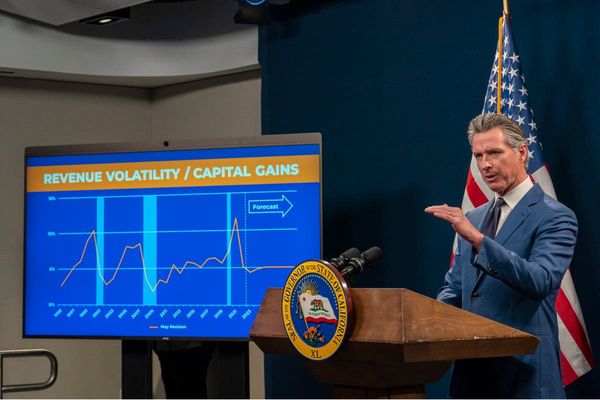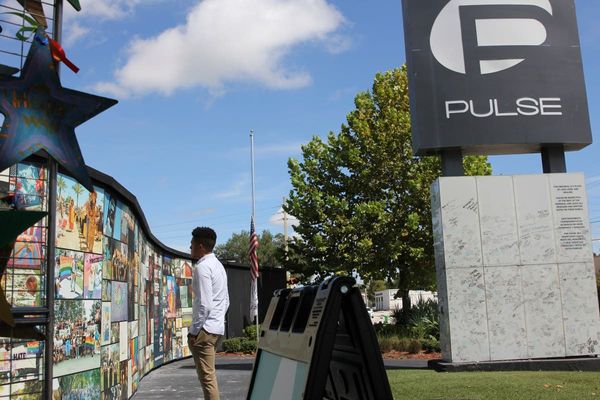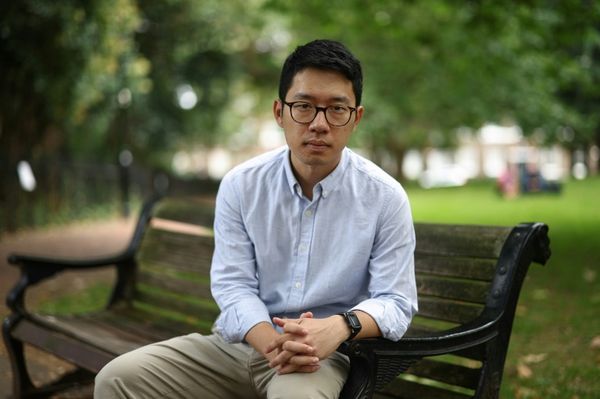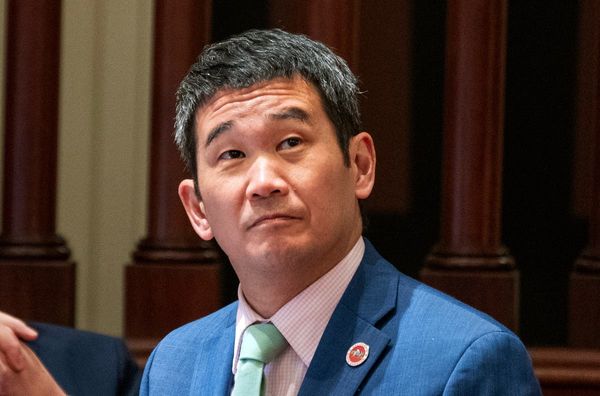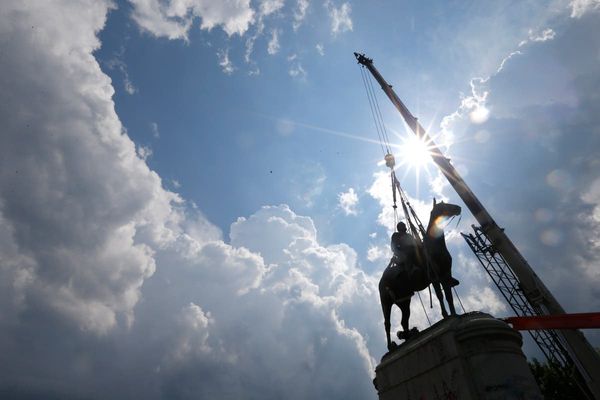Born in London in 1997, Mae Muller is a pop star and represented the UK at this year’s Eurovision. In 2017, she uploaded some tracks to SoundCloud, leading to industry interest, three EPs, a Little Mix tour support slot, more than 2bn streams, and a Top 10 single in the US with Better Days alongside Neiked and Polo G. Her Eurovision entry, I Wrote a Song, finished in 25th place, but peaked at No 9 in the UK Top 40 and became a hit across Europe. Her debut album, Sorry I’m Late, is out on 29 September.
This photograph is me aged 10, at my aunt’s flat in north London. I’d just had my first adult haircut. It used to be a bowl cut, so when I went for layers it was a huge moment. I felt like such a woman!
Every part of my life is so different from this little girl’s, but this flat and garden is my constant – the one thing that’s stayed the same – and it’s where I live now. It’s round the corner from Hampstead Heath, which is one of my favourite places, and where I used to hang out as a kid and a teenager. My aunt would have taken the photo, which is why I am doing that mischievous face.
Back then I was such a ham – every time someone brought a camera out, I’d strike a pose. I was a real chatterbox, too. Especially at school. At every parents’ evening the teachers would say to my mum and dad: “You know, she has good potential, but she just talks too much.”
I was quite fearless back then and I love that I didn’t compare myself with anyone else. When this was taken, I was just coming out of my tomboy phase – hence the dungarees – and on the verge of discovering and experimenting with my girliness a bit more. Puberty was lingering, and I was quite excited about growing up. I thought getting my period meant I might get boobs, so I was all for it.
At this point, I was hooked on music videos and in awe of the world of pop stars. It all felt completely unattainable to me. I wouldn’t watch Disney or read magazines – I’d wait three hours for Rihanna’s Pon de Replay to come on MTV. While other people wrote diaries, my way of expressing myself was writing music. I loved the honesty of Lily Allen, and I idolised Florence + the Machine and Gwen Stefani, so I’d mainly try to rewrite lyrics they had already written. One very early song was about my boyfriend turning into a werewolf in the middle of the night. Very Florence.
I enjoyed primary school, but in secondary school I got bullied. It made me stronger, but it also made me feel like an outcast. I was 12, the youngest in my year, and it took me ages to develop. I looked like a kid – which now I realise is fine, because I was still a kid! That didn’t matter to the bullies, who really liked to point out that I had a child’s body. I got a lot of insecurities and worried that I wasn’t curvy enough. Retrospectively, I think it was character building, but back then I was ready to leave. I didn’t want to go to school any more. I stayed, and luckily they got bored and moved on.
That experience came in handy when I got into music. Even though it’s much better with body positivity these days, there is still such a pressure for women to look a certain way in the industry. If the way I present myself makes someone feel more confident, then that is such a bonus – I am a size 10, which for some people is the very definition of body positivity. But what does that say about society? Being a size six or smaller is now the standard. If you are anything bigger than that you are labelled plus size. It’s not a bad thing, and I take pride in it. I just find it very interesting that I can’t just be a woman, that my size is even a talking point.
Thankfully, on the label and management side I’ve never felt heat to look a certain way or lose or gain weight. Instead, a lot of the pressure comes from the internet. Everyone now has access to you on social media, and people can say whatever they want. Sometimes it makes me insecure, but I’m quite good at letting those words bounce off me. If I took them seriously then I’d be back to being 12 again. I can’t let nasty comments integrate into my soul. Whoever is typing doesn’t know me. It’s not real. It’s not based on who I am as a person, how I treat people or how hard I work. It’s people trying to be mean. So I block them out.
I didn’t start writing music seriously until I was 19. I worked in a pub at night, so during the day I’d go into the studio with anyone who would have me. After six months I got a publishing deal, and that changed everything. I could leave my job and do music full-time. A year later, I got signed. It was all happening, and then Covid hit and the world stopped. During that period, Better Days took off in America and really elevated me. I was doing lots of sessions, and wrote I Wrote a Song. I sent it to my label and they got back to me and said: “What do you think of Eurovision – because they love the song you’ve written?” I said I’d love to do it, and that started the craziest five months of my life.
I had never experienced anything like it. A lot more people know who I am since Eurovision, but it was not all roses and happiness. I found it difficult – the intensity of the work, the highs and lows. While it is not an easy beat, I’m proud of the way I handled myself, so it was a positive experience.
I also learned so much about myself – mainly that I am strong as hell, and that if I can get through such a huge competition and then get over how it ended, I can get through anything. I never expected to win, and although the ending was extreme [Muller finished second to last], it became a talking point. I had everyone from Rita Ora to Sam Smith and Sadiq Khan sending me nice messages. The weirdest thing was being on the front page of the Telegraph for old tweets I had sent about the Tory party [the 2020 tweets said she had no sympathy for Boris Johnson when he contracted Covid, and “I hate this country” in response to debates about free school meals]. That was pretty odd.
While I’m tougher now, I’m also a lot more self-conscious than I was as that little girl. That’s partly just being a woman. A lifetime of subliminal messaging is going to affect you. There are times when I just wish I could go back to putting on that shirt and dungarees in the morning and thinking: “Life is great!” It was pretty simple back then. These days I can get too down on myself, worrying that I’m not as far down the line as I should be with my career. When that happens, I have to think back to my younger self. If she knew what I was doing today she’d say: “You’re an artist! It’s how you make your living. You’ve toured! You make music that connects with people.” She’d be amazed, as that was my dream. It was all I ever wanted.

